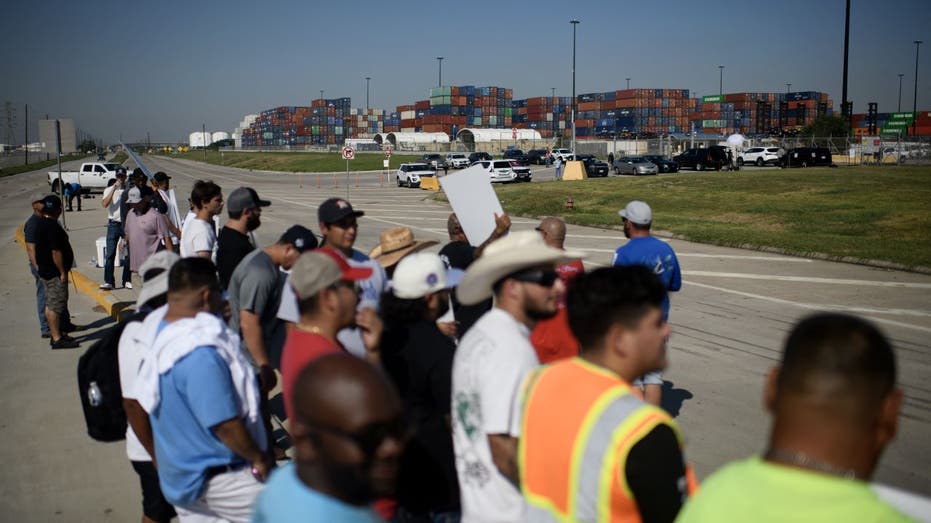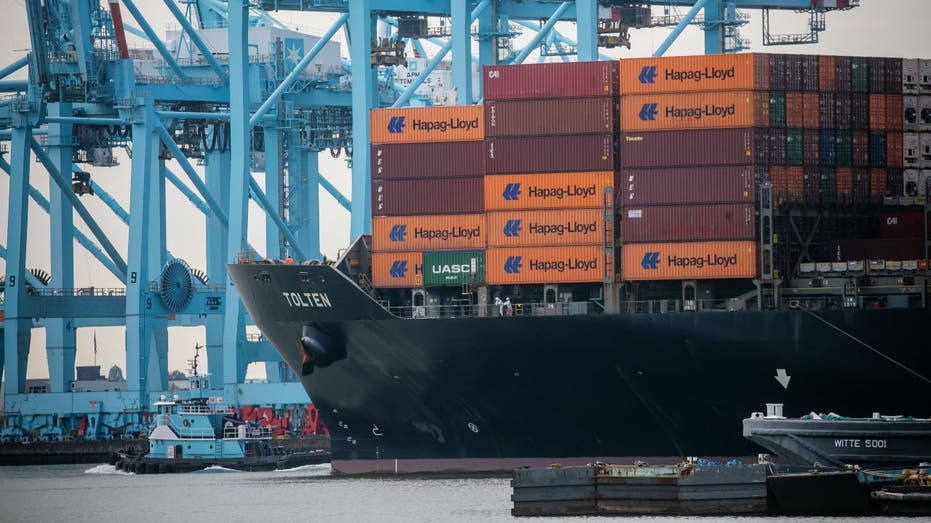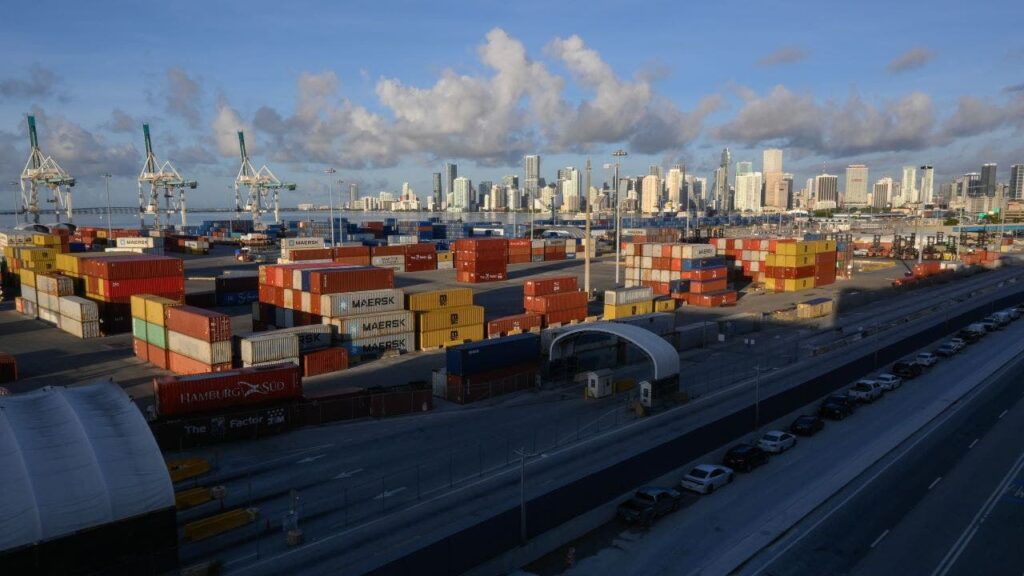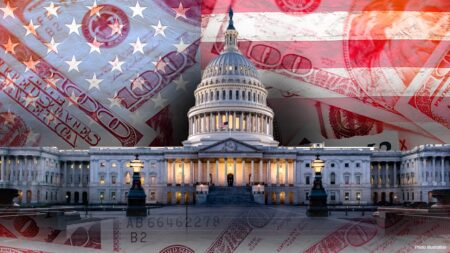Leading business groups in the U.S. are calling on President Biden to use his legal authority to intervene in the strike at East and Gulf Coast ports that began Tuesday.
About 45,000 unionized dockworkers with the International Longshoremen’s Association (ILA) at 36 seaports on the East and Gulf coasts went on strike on Tuesday after they were unable to reach a deal on a new contract. The union’s six-year contract with the U.S. Maritime Alliance (USMX), which represents port employers, expired Monday night. The ILA is seeking 77% pay raises over the course of the new contract as well as protection from automation.
The National Association of Manufacturers (NAM), the U.S. Chamber of Commerce, the National Retail Federation (NRF) and National Association of Wholesale-Distributors (NAW) released statements calling on Biden to invoke a federal labor law known as the Taft-Hartley Act that would restore operations at ports during an 80-day cooling off period while negotiations continue.
“Manufacturers call on President Biden to intervene by invoking the Taft-Hartley Act, which will force ports to resume operations while negotiations continue,” NAM CEO Jay Timmons said in a statement. “There will be dire economic consequences on the manufacturing supply chain if a strike occurs for even a brief period.”
THE TAFT-HARTLEY ACT: WHY BIDEN COULD USE THIS LABOR LAW TO PREEMPT A PORT STRIKE
“NAM estimates show a strike at the East and Gulf Coast ports would jeopardize $2.1 billion in trade daily, and the total economic damage could reduce GDP by as much as $5 billion per day,” Timmons said. “The president can protect manufacturers and consumers by exercising his authority, and we hope he will act quickly.”
U.S. Chamber of Commerce CEO Suzanne Clark said in a letter to Biden, “Americans experienced the pain of delays and shortages of goods during the pandemic-era supply chain backlogs in 2021. It would be unconscionable to allow a contract dispute to inflict such a shock to our economy.”
“These ports collectively handle more than 68% of all containerized exports and 56% of imports for the nation, with a daily trade value exceeding $2.1 billion. They are also critical to many small businesses including trucking, restaurants, and others that rely on these ports for their livelihood. Simply put, you have the authority to keep contract negotiations going while keeping the ports open,” Clark said. “Taft-Hartley would provide time for both parties in negotiations to reach a deal on a new labor contract.”
DOCKWORKERS GO ON STRIKE AT EAST AND GULF COAST PORTS

National Retail Federation CEO Matthew Shay released a statement saying that the group “urges President Biden to use any and all available authority and tools – including use of the Taft-Hartley Act – to immediately restore operations at all impacted container ports, get the parties back to the negotiating table and ensure there are no further disruptions.”
“A disruption of this scale during this pivotal moment in our nation’s economic recovery will have devastating consequences for American workers, their families and local communities,” Shay said. “After more than two years of runaway inflationary pressures and in the midst of recovery from Hurricane Helene, this strike will result in further hardship for American families.”
“The administration must prioritize our economy – and the millions of Americans who depend on it for their livelihood and wellbeing – and intervene immediately to prevent further hardship and deeper economic consequences,” he added.
TRUMP BLAMES PORT WORKERS STRIKE ON ‘MASSIVE INFLATION’ CAUSED BY ‘HARRIS-BIDEN REGIME’

Eric Hoplin, CEO of the National Association of Wholesaler-Distributors, said in a statement that the “East and Gulf Coast port strike is putting our economy and national security at risk. This strike isn’t just about disrupting a few shipments; it’s about stopping the supply chain and bringing the flow of critical goods to a standstill.”
Hoplin noted estimates putting the economic damage at upwards of $5 billion a day and that small and mid-sized businesses are at risk of facing empty shelves due to missed deliveries.
“The Biden administration must use its authority now to stop the strike before the impact becomes irreversible. This is not just about pay or shipping delays – it’s about our global competitiveness,” he said. “The administration must act decisively – end this strike, reopen the ports, and ensure the U.S. remains a leader in global trade.”
Read the full article here











